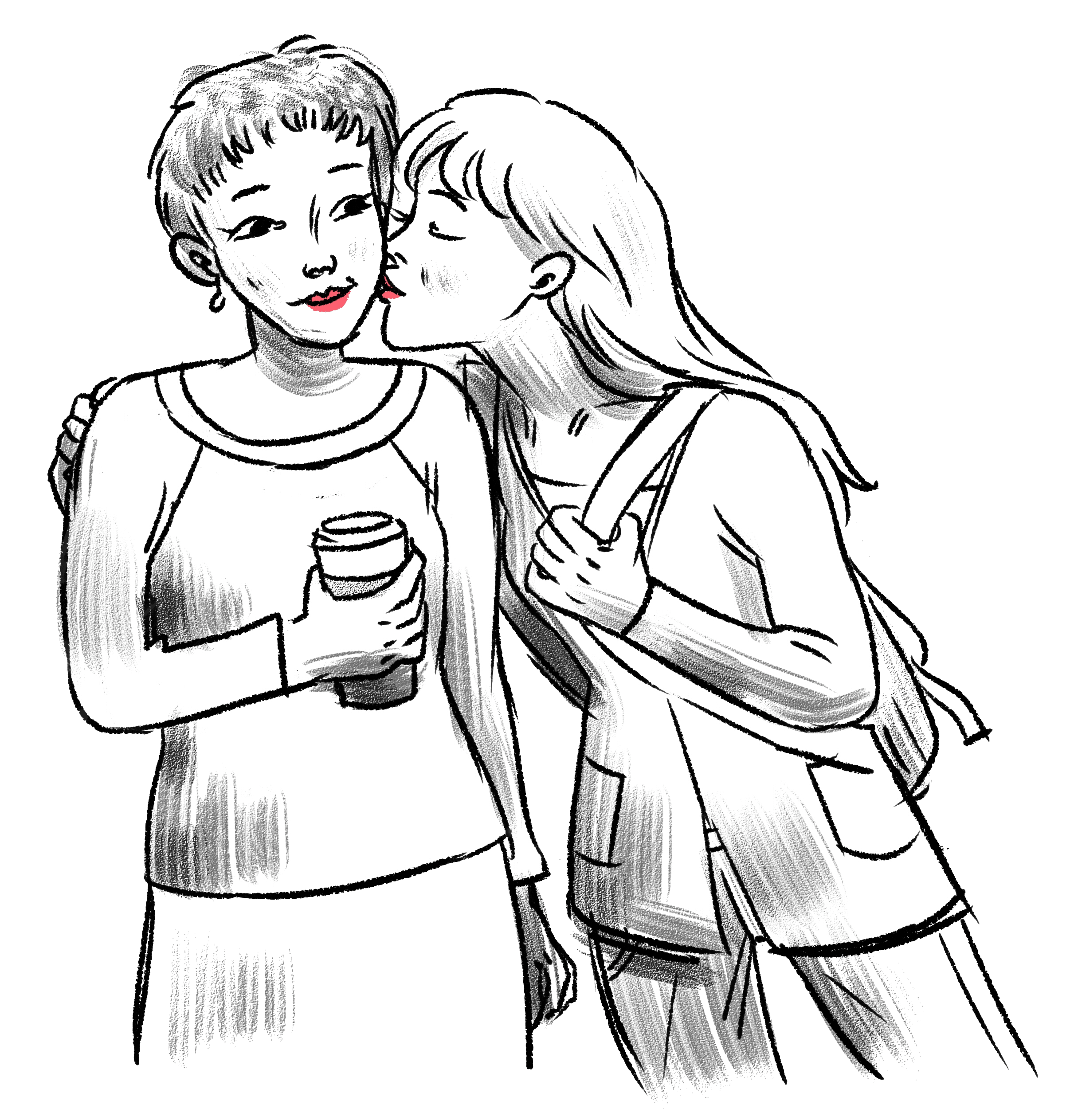I’m gay. Just like you can’t pick your eye or hair colour, I can’t choose who I fall in love with. When I come out, I usually get two types of reactions. From my family and friends, I have been fortunate enough to have received love and acceptance, and I typically hear things like: “I’m glad you feel comfortable telling me,” “I’m happy for you,” “We love you for who you are,” and “Oh, well I sort of guessed you were.” All of these responses are usually followed by the inevitable question: “So, how do lesbians have sex?” That is the most frequent question I get asked, and I will not be discussing it any further but I can assure you, yes, lesbians do have sex.
On the other hand, when I tell strangers or acquaintances, I have heard other responses:“You’re confused. It’s just a phase,” “You haven’t found the right guy yet,” “I can make you straight,” “You’re too pretty to be gay,” and “Oh. Well does that mean you and your girlfriend will have a threesome with me?” “That’s disgusting.”
I am not alone in this. People in the lesbian, trans, queer, bisexual, and gay community have to deal with bigotry, stereotyping, and just plain rude comments. As a consequence, we have learned to deal with ignorance, and continue on with our days. I think I can speak for many when I say that having to constantly come out to everyone you meet can be hard, exhausting, and sometimes very disheartening. When you hear over and over again that you are wrong, gross, and sick, sometimes you start to believe it.
We have spent our lives learning to love and accept ourselves, even though we are subjected to ridicule, hate, rape, and murder by those who don’t even know us. Sometimes, we hate ourselves more than they do. And that is why queer teens are more likely to become depressed or commit suicide.
But we learn to let the small things slide, including the snide comments, the constant criticism, the stares and whispers we get when we walk down the streets with our partners. We grow tough. We stand up for ourselves; we have parades and support groups, communities, and safe havens.
But sometimes we shouldn’t let the small things slide. An example of this happened to me a few weekends ago. I was with my girlfriend, we were kissing, and a schoolmate decided it would be a great idea to take a picture of us.
I don’t know what upset me more, the fact that he thought that was an acceptable thing to do, or that nobody else sitting at that table with him stopped him. The worst part is that this isn’t the first time this has happened to me, and I’m sure it will not be the last.
We are not animals in the zoo to be gawked at — although that is sometimes how it feels — and we are definitely not here as a source of entertainment or pleasure. I am tired of constantly having to choose whether to walk away from a situation like this or start a confrontation. It wears you down and this time I chose to walk away.
In the grand scheme of things, small incidents like this shouldn’t even bother us. There are bigger things at work. We are gaining victories, like the rights to get married, to adopt children, to join the army, and to donate blood. But these small acts of homophobia still hurt, because we are just humans too.
It isn’t just the gay community that deals with this. Everyone experiences bullying and hardship; it could be based on their race, their looks, their weight, their intelligence, or their clothing. We all need to realize that our actions, however small, can hugely impact another person’s life.
So, I write this article for everyone who has ever felt different, who has wished to be somebody else, who has felt unfairly judged or oppressed by those around them. It is for those who have been afraid to be themselves. My heart goes out to everyone who has been through hell and come out the other side alive.
I write this to you, the eager photographer, in the hopes that you’ll think twice about pulling out your camera phone the next time you see two girls kissing.
Nicole Doucette is a third-year mineral engineering student.


